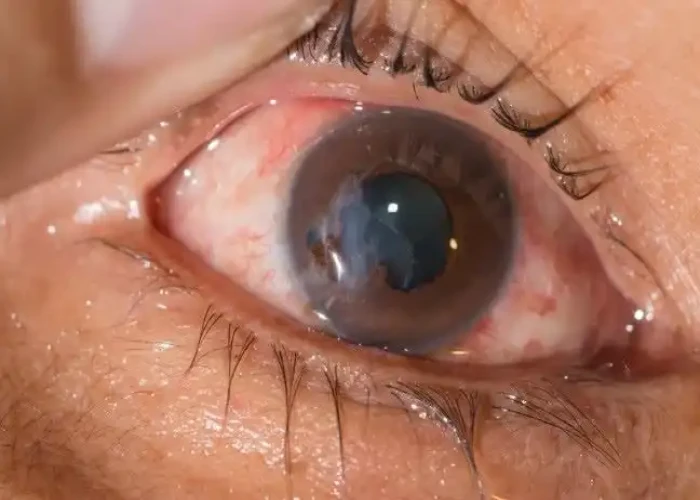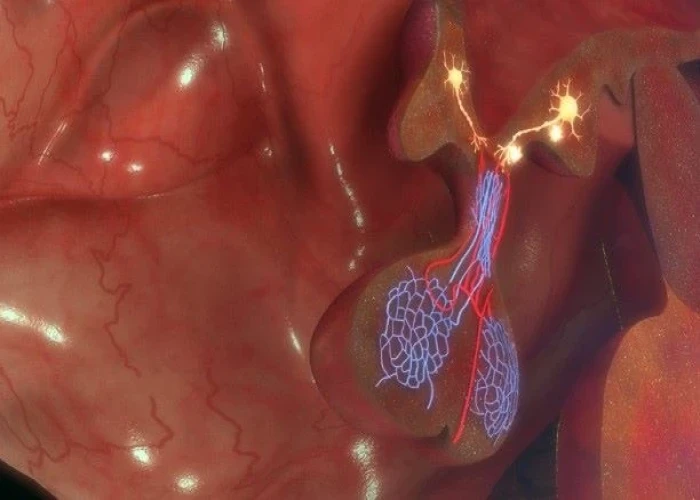 Welcome
Welcome
“May all be happy, may all be healed, may all be at peace and may no one ever suffer."
Balance problems

Balance problems refer to a condition in which a person has difficulty maintaining their equilibrium or remaining upright. Balance problems can be caused by a variety of factors, including inner ear disorders, neurological conditions, vision problems, medication side effects, or other underlying medical conditions. Symptoms of balance problems may include dizziness, vertigo, unsteadiness, or falling. Treatment options may depend on the underlying cause of the balance problem and may include medications, physical therapy, occupational therapy, or other interventions. It is important to consult with a healthcare professional if you are experiencing balance problems, as they may be a sign of a more serious underlying condition.
Research Papers
Disease Signs and Symptoms
- Dizziness when moving
- Fainting (syncope)
- Dizziness (vertigo)
- Confusion (Hallucinations)
- A false sense of motion or spinning (vertigo)
Disease Causes
Balance problems
Balance problems can be caused by several different conditions. The cause of balance problems is usually related to the specific sign or symptom.
Sense of motion or spinning (vertigo)
Vertigo can be associated with many conditions, including:
- Benign paroxysmal positional vertigo (BPPV). BPPV occurs when calcium crystals in your inner ear — which help control your balance — are dislodged from their normal positions and move elsewhere in the inner ear. BPPV is the most common cause of vertigo in adults. You might experience a spinning sensation when turning in bed or tilting your head back to look up.
- Vestibular neuritis. This inflammatory disorder, probably caused by a virus, can affect the nerves in the balance portion of your inner ear. Symptoms are often severe and persistent, and include nausea and difficulty walking. Symptoms can last several days and gradually improve without treatment. This is a common disorder second to BPPV in adults.
- Persistent postural-perceptual dizziness. This disorder occurs frequently with other types of vertigo. Symptoms include unsteadiness or a sensation of motion in your head. Symptoms often worsen when you watch objects move, when you read or when you are in a visually complex environment such as a shopping mall. This is the third most common disorder in adults.
- Meniere's disease. In addition to sudden and severe vertigo, Meniere's disease can cause fluctuating hearing loss and buzzing, ringing or a feeling of fullness in your ear. The cause of Meniere's disease isn't fully known. Meniere's disease is rare and typically develops in people who are between the ages of 20 and 40.
- Migraine. Dizziness and sensitivity to motion (vestibular migraine) can occur due to migraine. Migraine is a common cause of dizziness.
- Acoustic neuroma. This noncancerous (benign), slow-growing tumor develops on a nerve that affects your hearing and balance. You might experience dizziness or loss of balance, but the most common symptoms are hearing loss and ringing in your ear. Acoustic neuroma is a rare condition.
- Ramsay Hunt syndrome. Also known as herpes zoster oticus, this condition occurs when a shingles-like infection affects the facial, auditory and vestibular nerves near one of your ears. You might experience vertigo, ear pain, facial weakness and hearing loss.
- Head injury. You might experience vertigo due to a concussion or other head injury.
- Motion sickness. You might experience dizziness in boats, cars and airplanes, or on amusement park rides. Motion sickness is common in people with migraines.
Feeling of faintness or lightheadedness
Lightheadedness can be associated with:
- Hemodynamic orthostatic hypotension (postural hypotension). Standing or sitting up too quickly can cause some people to experience a significant drop in their blood pressure, resulting in feeling lightheaded or faint.
- Cardiovascular disease. Abnormal heart rhythms (heart arrhythmia), narrowed or blocked blood vessels, a thickened heart muscle (hypertrophic cardiomyopathy), or a decrease in blood volume can reduce blood flow and cause lightheadedness or a fainting feeling.
Loss of balance or unsteadiness
Losing your balance while walking, or feeling imbalanced, can result from:
- Vestibular problems. Abnormalities in your inner ear can cause a sensation of a floating or heavy head and unsteadiness in the dark.
- Nerve damage to your legs (peripheral neuropathy). The damage can lead to difficulties with walking.
- Joint, muscle or vision problems. Muscle weakness and unstable joints can contribute to your loss of balance. Difficulties with eyesight also can lead to unsteadiness.
- Medications. Loss of balance or unsteadiness can be a side effect of medications.
- Certain neurological conditions. These include cervical spondylosis and Parkinson's disease.
Dizziness
A sense of dizziness or lightheadedness can result from:
- Inner ear problems. Abnormalities of the vestibular system can lead to a sensation of floating or other false sensation of motion.
- Psychiatric disorders. Depression (major depressive disorder), anxiety and other psychiatric disorders can cause dizziness.
- Abnormally rapid breathing (hyperventilation). This condition often accompanies anxiety disorders and may cause lightheadedness.
- Medications. Lightheadedness can be a side effect of medications.
Disease Prevents
Disease Treatments
Treatment depends on the cause of your balance problems. Your treatment may include:
- Balance retraining exercises (vestibular rehabilitation). Therapists trained in balance problems design a customized program of balance retraining and exercises. Therapy can help you compensate for imbalance, adapt to less balance and maintain physical activity. To prevent falls, your therapist might recommend a balance aid, such as a cane, and ways to reduce your risk of falls in your home.
- Positioning procedures. If you have BPPV, a therapist might conduct a procedure (canalith repositioning) that clears particles out of your inner ear and deposits them into a different area of your ear. The procedure involves maneuvering the position of your head.
- Diet and lifestyle changes. If you have Meniere's disease or migraines, dietary changes are often suggested that can ease symptoms. You may need to limit salt intake and avoid other dietary triggers such as caffeine, alcohol and certain ingredients. If you experience postural hypotension, you might need to drink more fluids or wear compression stockings.
- Medications. If you have severe vertigo that lasts hours or days, you might be prescribed medications that can control dizziness and vomiting.
- Surgery. If you have Meniere's disease or acoustic neuroma, your treatment team may recommend surgery. Stereotactic radiosurgery might be an option for some people with acoustic neuroma. This procedure delivers radiation precisely to your tumor and doesn't require an incision.
Disease Diagnoses
Disease Allopathic Generics
Disease Ayurvedic Generics
Disease Homeopathic Generics
Disease yoga
Balance problems and Learn More about Diseases

Hand-foot-and-mouth disease

Pericardial effusion

Childhood apraxia of speech

Bipolar disorder

Traumtic eye

Ulcerative colitis

Pituitary tumors

Gestational diabetes
Balance problems, Ear balance symptoms, Loss of balance causes, ভারসাম্য সমস্যা
To be happy, beautiful, healthy, wealthy, hale and long-lived stay with DM3S.
